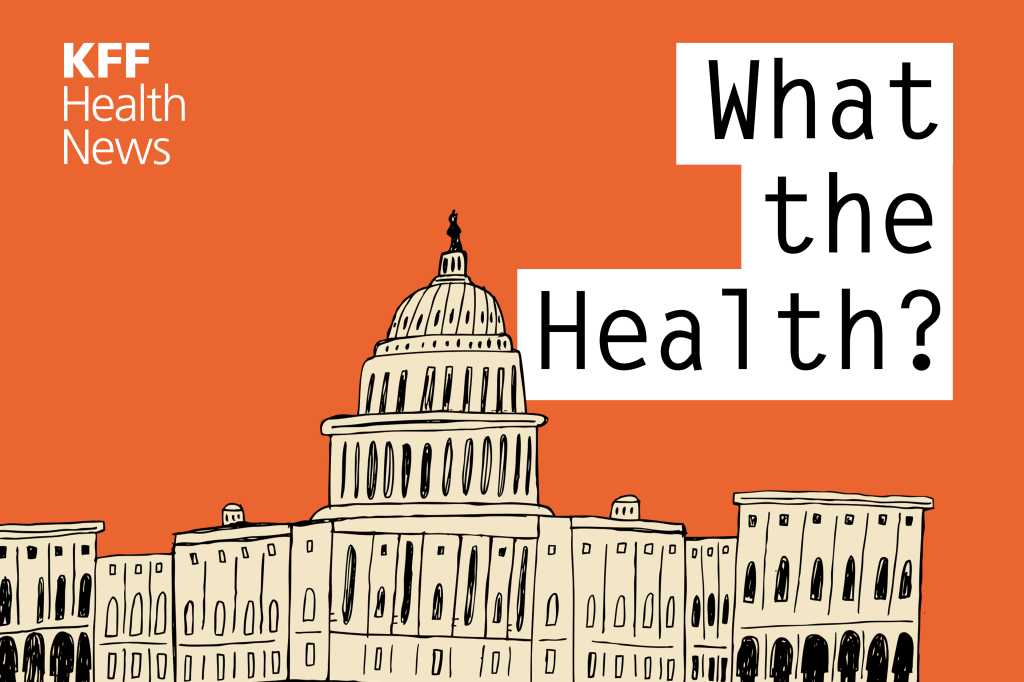President Donald Trump has issued a new executive order that may significantly reshape the future of federal scientific research. This directive moves funding decisions from career professionals to political appointees, raising concerns about the integrity and apolitical nature of crucial research entities like the National Institutes of Health (NIH).
The order comes amid heightened tensions surrounding public health, particularly in light of a recent attack on the Centers for Disease Control and Prevention (CDC) headquarters in Atlanta. The assailant was allegedly motivated by discontent regarding COVID-19 vaccinations, underscoring the dangers posed by escalating anti-health rhetoric.
Panelists on KFF Health News’ podcast, “What the Health?”, discussed the implications of Trump’s directive. Among the participants were Julie Rovner from KFF Health News, Sarah Karlin-Smith of the Pink Sheet, Shefali Luthra of The 19th, and Alice Miranda Ollstein of Politico. They noted that the executive order illustrates a conflict between congressional directives on science funding and the current administration’s approach. Traditionally, Congress has set the parameters for funding, allowing experts to guide decisions.
The NIH, often regarded as a pillar of American scientific achievement, has operated without political interference until now. The new executive order raises alarms about potential grant cancellations and the broader uncertainty it could bring to scientific research. Investors are reportedly beginning to hesitate, fearing the ripple effects of this policy shift might extend beyond what the Trump administration anticipates.
Concerns also surround the role of Robert F. Kennedy Jr., Secretary of Health and Human Services, whose rhetoric has been criticized for contributing to a hostile environment for public health officials. Following the attack on the CDC, many staff members have expressed discontent with leadership decisions that seem to exacerbate vaccine hesitancy. Recently, Kennedy called for the Annals of Internal Medicine to retract a study affirming the safety of aluminum adjuvants in childhood vaccines, a request the journal rejected based on scientific evidence.
The political landscape is further complicated by a sweeping budget law backed by the Republican Party, which introduces significant cuts to Medicaid. While GOP leaders claim these reductions target waste and fraud, the reality reveals a more complex situation. Many healthcare institutions, including hospitals and community health centers, are already planning for the impact of these funding cuts, which could hinder their ability to provide essential services.
In terms of public health trends, the CDC reported a reduction in the consumption of ultra-processed foods among Americans. Despite this positive development, the Trump administration has been criticized for its lack of regulatory measures to compel the food industry to make necessary changes. Efforts thus far have largely focused on encouraging voluntary actions, a strategy that has drawn skepticism from health advocates.
Former FDA chief David Kessler emphasized the need for more robust regulatory frameworks to address public health concerns effectively. In a related discussion, Julie Rovner interviewed Aaron Carroll, president and CEO of AcademyHealth, about rebuilding public trust in health institutions after a period marked by skepticism and misinformation.
As the podcast concluded, the panelists shared notable health policy stories from the week, recommending readers explore topics such as the challenges faced by military veterans in accessing healthcare and the complexities of health insurance for young Americans transitioning from parental plans.
For further insights, KFF Health News invites listeners to subscribe to “What the Health?” on platforms like Spotify and Apple Podcasts, where they can find in-depth discussions on the evolving landscape of health policy and research.
